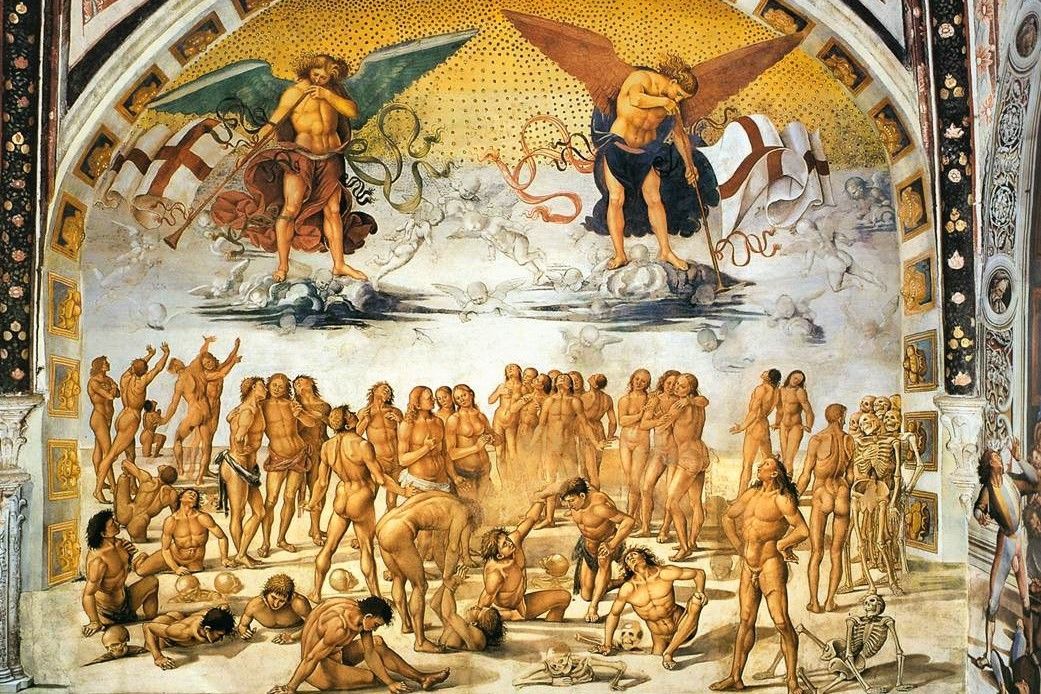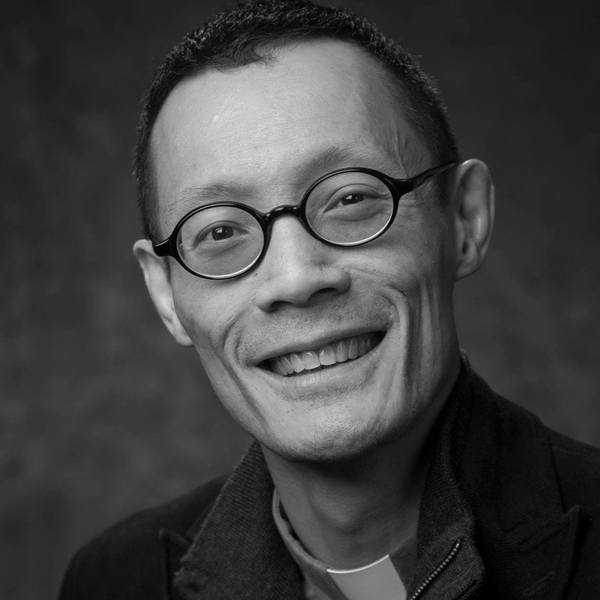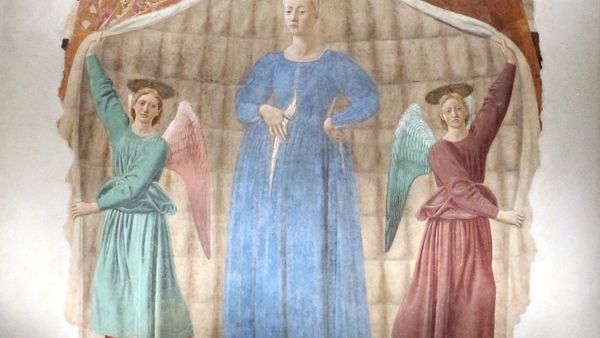At the beginning of this past week, I asked my students in all three sections of my Theology 100 course, “What is the reason for Advent?” Those who responded said that Advent prepares us for a joyful remembrance of Christmas. Not one of my 104 students connected Advent with the Second Coming of Christ. When told of the relationship between the Last Judgment and Advent, one student asked why then do we put the season of Advent before Christmas? As if she was asking, "Why do we put a penitential season before a joyful season?"
That question was a perfect segue into our class discussion on Father Alfred Delp, a German Jesuit who was executed for high treason on February 2, 1945, for being a member of an anti-Nazi resistance group. While awaiting execution, Delp wrote a few meditations on Advent, on its profound message of hope for Christians during difficult times. He approached the season as a time not only to remember Christ’s birth but also to awaken in us the responsibility to participate in the present unfolding drama of God's reign in the world. Advent, if observed correctly, ought to quicken the desire—that can lie dormant within each of us—to testify to God’s reign over sin and evil. One is not waiting passively for the arrival of the victorious Christ, but rather one is witnessing that arrival.
When one opens up Delp’s prison meditations on Advent from 1944, one is alerted to its urgent tone that obliges fellow Christians to wake up from their delusion and to the truth of the atrocities happening around them. He was horrified not just because of the crimes that were happening in his country but that they were occurring without any sense of guilt. Auschwitz was the result of people seizing absolute power and freedom in the titanic bid to become as gods. However, the barbarity and cruelty also transpired because persons feared to recognize how deep their countrymen had dragged their nation into depravity.
Here, Delp became a John the Baptist type, an irascible and cantankerous character who spoke truth to power, alerting people of the need to expose their sins of commission and omission for judgment and forgiveness. The German Jesuit writes, “Woe to any age in which the voice crying in the wilderness can no longer be heard because the noises of everyday life drown it—or restrictions forbid it—or it is lost in the hurry and turmoil of ‘progress’—or simply stifled by authority, misled by fear.”[1] Like the Baptist, Delp preaches forgiveness, but, before forgiveness can be offered, sin must be adjudicated and condemned.
Recognizing sin and loosening the stranglehold of fear and willful blindness are not matters that can be postponed to suit our convenience because such waiting can be destructive to our souls. Yes, “waiting,” one of the more popular understandings of Advent can be harmful to the Christian body, individually and socially. A false waiting imperils us if we think that all that is expected of us in Advent involves sitting back and killing time. Genuine waiting consists in conducting oneself in holiness and devotion (2 Peter 3:11-12). Therefore, the theme for the Second Week of Advent is to witness to Christ, to follow his way, and to enact his mission.
Moreover, in a previous Advent reflection from 1942, Delp states that witnessing to Christ must include a testimony on behalf of our world. Delp says we gamble away our own salvation if we don’t fight for justice and truth in the world. We may recoil at such demands, but the maturation of faith needs to pass through the deserts and wildernesses of the world. Delp points out that the Second Sunday of Advent’s entrance antiphon reads God as the one who comes to save “the nations.” God did not become human to save a nation, but the nations, the world. His “desire to save” can never be restricted to any tribal, ethnic, national, or political identity. Because the Lord desires to save the whole earth in Christ, his work of salvation is still ongoing. That is, “His birth, suffering, and death should be continuing to happen anew within us and within our Church.”[2] The universal and inclusive salvation materializes when it moves from the nations to the individual penitent, who acknowledges his own sinfulness before God and desires to repent, thereby gaining love for others.
As such, life is a continuous Advent; there is no point in our lives at which fulfillment is completed. Christian life mirrors the “ever-more” of the Holy Spirit. Consequently, Advent, which is related to the Second Coming, involves the sanctifying work of the Spirit. When our lives are centered in the Spirit, we will then be persons of “readiness and vigor, armed with the desire to save peoples”[3] and not focus on our individual salvation.
In a 1942 Advent Holy Hour, Delp, drawing from the spirituality of the Sacred Heart, expresses this difficult but indispensable truth of taking up the cause of others:
Cor Jesu stands before us with the wounds He bears in the center of His Heart. A deeply essential feature of our life is visible here. Even from the natural perspective, the idea of sacrifice belongs to the pattern of life, and it belongs even more to the pattern of the Christian life.[4]
This poignant passage illustrates that the Word is not merely made flesh but is “made” into a pierced heart. We see that Christ’s Heart summons our hearts to a conversion and invites us to be partners in the divine redemptive work. This notion of self-giving involves serving one’s community and taking on its brokenness:
Whoever is not capable of standing before one’s community, one’s brothers [and sisters], and somehow taking their deepest needs upon yourself—coming before the Lord God and taking on the guilt, taking on the punishment—without this capability, then one still lacks a great deal before one can call oneself a Christian, and let yourself appear in the presence of God.[5]
Nonetheless, Delp is not demanding that people perform impressive acts; the commitment to one’s fellow human in need does not require great works but rather a greatness of heart: “God does not need great pathos or great works. He needs greatness of heart. He cannot calculate with zeroes.”[6]
Therefore, the Divine Infant in the Christmas encounter is the God who makes demands on, and judges, us. For Delp, we can make an idol out of the Nativity story with a superficial sentimentality and sweetness that has contributed to the marginalization of Christianity in the modern world. Not all criticism of religion come from the Masters of Suspicion. In Delp’s Advent meditations, there is a criticism of Christianity that would find common cause with an atheist such as Ludwig Feuerbach. Both thinkers judged that idolatrous self-projections lie at the heart of one’s understanding of God. For Feuerbach, the response to idolatry leads to the rejection of God, whereas, for Delp, it demands that one’s faith in God must pass through the deserts and wildernesses of our world in light of the Last Judgment. Divine judgment is one of mercy. Faith places hope in a God who will redress evil to safeguard the meaning of Christian witness in the world. Seeking God’s glory, as Delp would believe with the consummation of his life, involves welcoming the Spirit of Christ in our hearts so that we can bear others:
In the same way that lies have gone out from people’s hearts, penetrating throughout the world and destroying it, so should—and so will—the truth begin its healing service within hearts. Light the candles wherever you can, you who have them. They are a real symbol of what must happen in Advent, what Advent must be, if we want to live.[7]
We have a duty to let that love shine, to serve, to draw others to God, allowing oneself to be wholly consumed in the process.
Editor's Note: This post is a version of the homily Fr. Nguyen preached at St. John's parish (Creighton University) during the 2nd Sunday of Advent.
[1] Alfred Delp, Alfred Delp, S.J.: Prison Writings (Maryknoll, NY: Orbis, 2004), 16.
[2] Alfred Delp, Advent of the Heart (San Francisco: Ignatius, 2006), 70.
[3] Ibid., 71.
[4] Ibid., 83.
[5] Ibid., 83.
[6] Ibid., 83.
[7] Ibid., 53.


